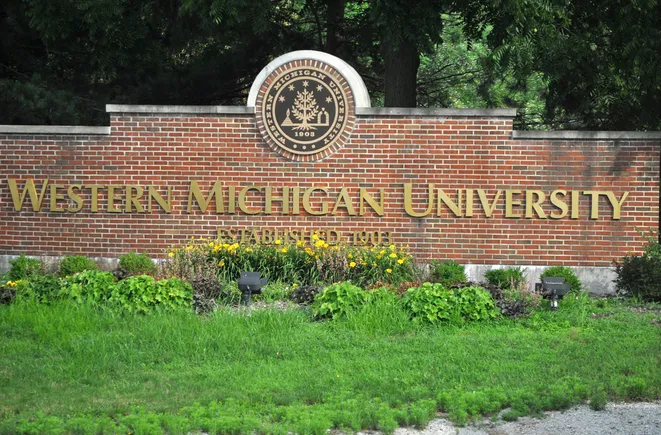Dive Brief:
- Attacks on or discrimination against people because of their Zionist beliefs could violate New York University’s updated student nondiscrimination and anti-harassment guidance, drawing free speech concerns from some faculty members.
- On Aug. 22, university administrators notified students and faculty that NYU’s student conduct guidelines had been amended to add examples of anti-Zionist behavior as misconduct. Examples include using or disseminating tropes about Zionists and denying Zionists entry from open events and NYU activities.
- “Using code words, like ‘Zionist,’ does not eliminate the possibility that your speech violates the [nondiscrimination and anti-harassment] Policy,” the updated document says. “For many Jewish people, Zionism is a part of their Jewish identity.”
Dive Insight:
In a joint Thursday statement, NYU Provost Georgina Dopico and Executive Vice President Martin Dorph said the update “provides additional examples and clarity about our existing policies” and is geared toward setting “a more productive tone” for the new academic year.
The new language does not change the university’s policies and is not intended to stifle speech, NYU spokesperson John Beckman said Tuesday.
“This is not the ‘weaponization’ of a word — it is providing further guidance to our community about how our policies apply in different circumstances,” he said in a statement. The policy “focuses on exclusionary or harassing conduct against individuals, not scholarly or public debate and commentary on particular countries or their specific policies or actions.”
It is unclear if NYU administrators consulted the university’s faculty and staff as part of the update. The university did not immediately respond to additional questions Tuesday.
NYU’s chapter of Faculty and Staff for Justice in Palestine decried the university’s updated harassment policy in a Sunday press release, arguing the policy “equates criticism of Zionism with discrimination against Jewish people.”
“The new guidance implies that any nationalist political ideology (Hindu nationalism, Christian nationalism, etc.) that is integrated into some members of that group’s understanding of their own racial or ethnic identity should be entitled to civil rights protections,” NYU FSJP said. “This is a disturbing development that will legitimize far-right and ethnonationalist ideologies under the guise of protecting students from racial discrimination.”
NYU FSJP also took issue with what the group called the policy’s “equation of Zionism with Jewish identity.”
The policy comes after a fraught semester at NYU. In late April, police cleared an encampment on the university’s campus in which protesters called for NYU to divest from companies that do business with Israel, including weapons manufacturers. At the time, university officials said they called in police over safety issues and after learning of reports of antisemitic incidents. Law enforcement arrested over 100 people, according to news reports.
The debate over what constitutes antisemitism has been at the heart of campus tensions surrounding pro-Palestinian demonstrations.
Some of the best-known guidance comes from the International Holocaust Remembrance Alliance, which adopted a working definition of antisemitism in 2016. It says that criticism of Israel “similar to that leveled against any other country” does not rise to antisemitism.
But as examples of possible antisemitic acts, the IHRA included arguing that “the existence of a State of Israel is a racist endeavor” and comparing contemporary Israeli policy to that of the Nazis.
The American Civil Liberties Union has pushed back on the use of IHRA’s definition to enforce civil rights protections, arguing that the examples include protected speech critical of Israel and its policies. And over 100 civil society and humanitarian organizations last year urged the United Nations to not adopt the definition over similar concerns.
Many U.S. Jewish organizations with ties to Israel have embraced the definition. Earlier this year, a coalition of such groups wrote to House lawmakers expressing support for the widespread adoption of the definition, though they noted its purpose is to inform “and not enforce.”
Groups supporting the definition include the American Jewish Committee, which said the IHRA’s wording “leaves a wide berth for sharp and vigorous criticism of Israel’s government and policies.”
“It is a ‘non-legally binding’ definition intended to guide and educate,” the group says on its website. “It is not a means to squelch debate or free speech, and those who misuse it in this way should be opposed.”
The working definition is used in the U.S., including by the State Department, as well as some state and local governments.
NYU adopted the IHRA’s definition in 2020, a decision which NYU FSJP said laid the groundwork for the university’s updated antidiscrimination language.
“The Association for Jewish Studies has called on universities to resist campaigns to adopt a single definition of antisemitism, like the one enshrined in IHRA, since Jewish studies scholars, organizations and communities see the relationship between anti-Zionism and antisemitism in vastly different ways,” the group said. “Yet the administration of NYU has flatly ignored all of these warnings.”
One of the authors of the IHRA’s definition, Kenneth Stern, said in a February op-ed for The Boston Globe that his work was never intended to be applied to college campuses and warned against its use as “a definition-turned-speech code.”
Some Jewish groups have increasingly pushed lawmakers and universities to adopt the definition “to chill or suppress much pro-Palestinian speech,” he wrote. “But it was never intended to be weaponized to muzzle campus free speech.”
Stern, who is also oversees at Bard College’s Center for the Study of Hate, said his work was designed primarily for data collection on antisemitism among countries, and he called on colleges to “mine the expertise of the faculty” to teach students about navigating conflict and combating hate.
“When we use the term antisemitism so expansively, it’s emptied of its meaning, harming our ability to confront it,” he wrote.
#NYU #antiZionist #discrimination #violate #student #conduct #rules










